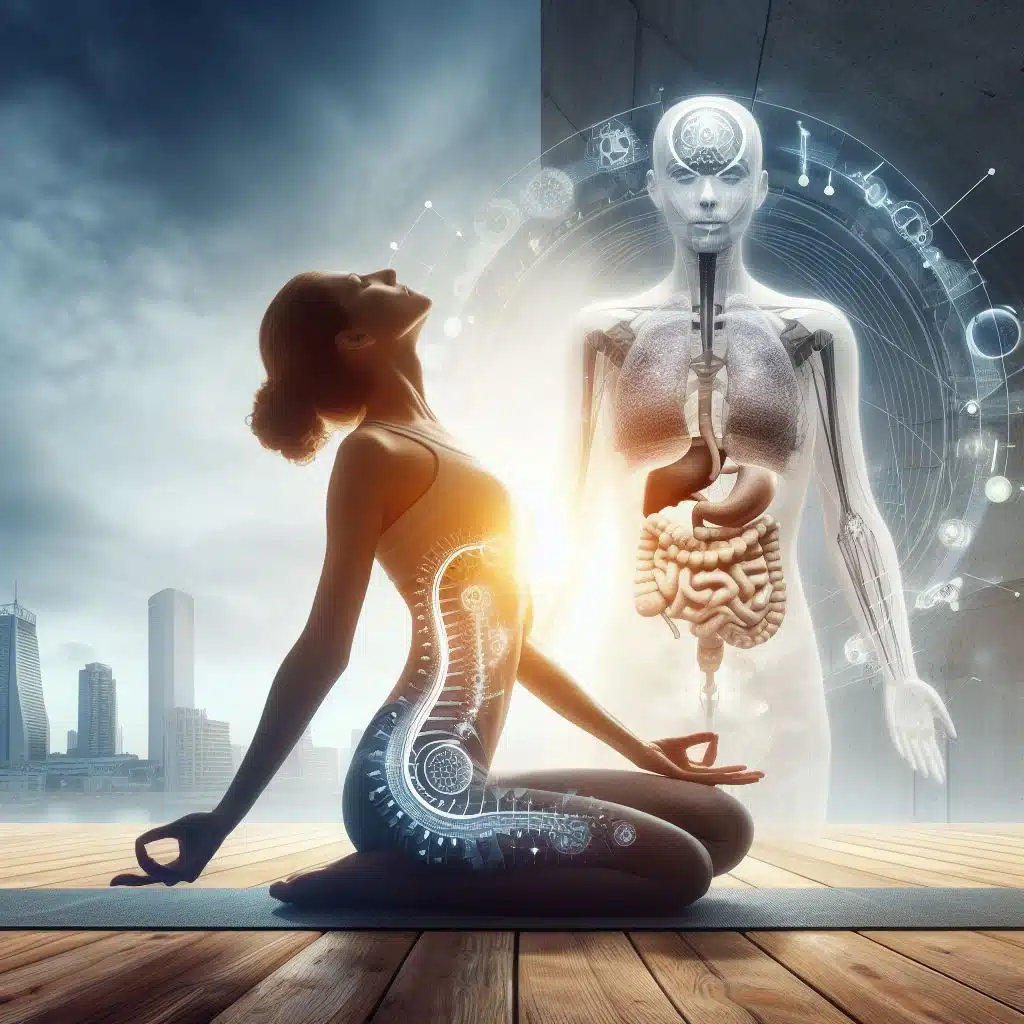Pilates is much more than a simple physical activity, it represents a path to harmonizing the body and soul. This article explores how each Pilates exercise helps strengthen not only our muscles but also our mental well-being.
1. Controlled breathing: A bridge to serenity.
Controlled breathing is the heart of Pilates. Each deep, measured inhalation and exhalation serves as an anchor and helps reduce stress and increase concentration. This focus on breathing improves mental presence, a crucial element of a healthy mind. Through regular practice, we learn to use breathing as a tool to achieve a state of calm and clarity.
2. Concentration: Strengthening mental awareness.
Pilates requires intense concentration with every movement. This high level of attention improves self and body awareness and thereby improves cognitive abilities. It is more than a physical exercise; It is a mental training that helps sharpen thoughts and improve memory. This practice also develops the ability to focus on other aspects of life.
3. Attitude and alignment: to new self-confidence.
Pilates emphasizes the importance of good posture and proper body alignment. Improving posture has a positive effect on self-esteem and self-confidence. A well-aligned body provides strength and control, which are essential for a positive mindset. This discipline teaches you to maintain the correct posture not only during training but also in everyday life.
4. Control and precision: Self-control and mental discipline.
Control is an essential part of Pilates. Each movement is performed with extreme precision, requiring and developing significant mental discipline. This practice strengthens willpower and endurance, important mental qualities in everyday life. Pilates is not just a physical exercise; It is a method for cultivating self-control and determination.
These Pilates principles are not just exercise techniques, but life lessons that can be applied beyond the gym to improve overall well-being and quality of life.
5. Flow of Movement: Reduce Anxiety and Stress:
Pilates is similar to a form of movement meditation with its flowing, graceful movements. This liquid, essential for the practice, helps to create a state of deep relaxation. It plays a crucial role in reducing anxiety and stress and provides practitioners with a sense of calm and inner peace. The harmonious coordination of body and mind during these movements contributes to greater calmness and makes Pilates a valuable ally in dealing with everyday stress.
6. Strength and endurance: development of psychological resilience.
In addition to strengthening muscles and improving physical endurance, Pilates symbolizes the development of psychological strength and resilience. Every movement and posture presents a challenge that needs to be overcome, promoting the development of mental strength. This inner strength manifests itself in the ability to overcome physical challenges and carries over into daily life, where psychological resilience becomes an essential tool to face obstacles with confidence and security.
7. Balance: Mental and Emotional Stability.
Balance exercises in Pilates are not limited to their physical benefits. They are also a metaphor for mental and emotional stability. By learning to maintain physical balance, practitioners also develop a sense of balance in their personal lives. This skill helps one navigate life’s emotional ups and downs with grace and confidence, and strengthens mental stability and the ability to remain focused in various situations.
Conclusion:
A psychological and physical balance. Pilates is not just an exercise for the body, but also for the mind. It offers a path to holistic wellness, where physical and mental balance contribute to improving overall health. By incorporating Pilates into our routine, we open the door to a more serene and balanced life, where mind and body support each other in perfect harmony.

